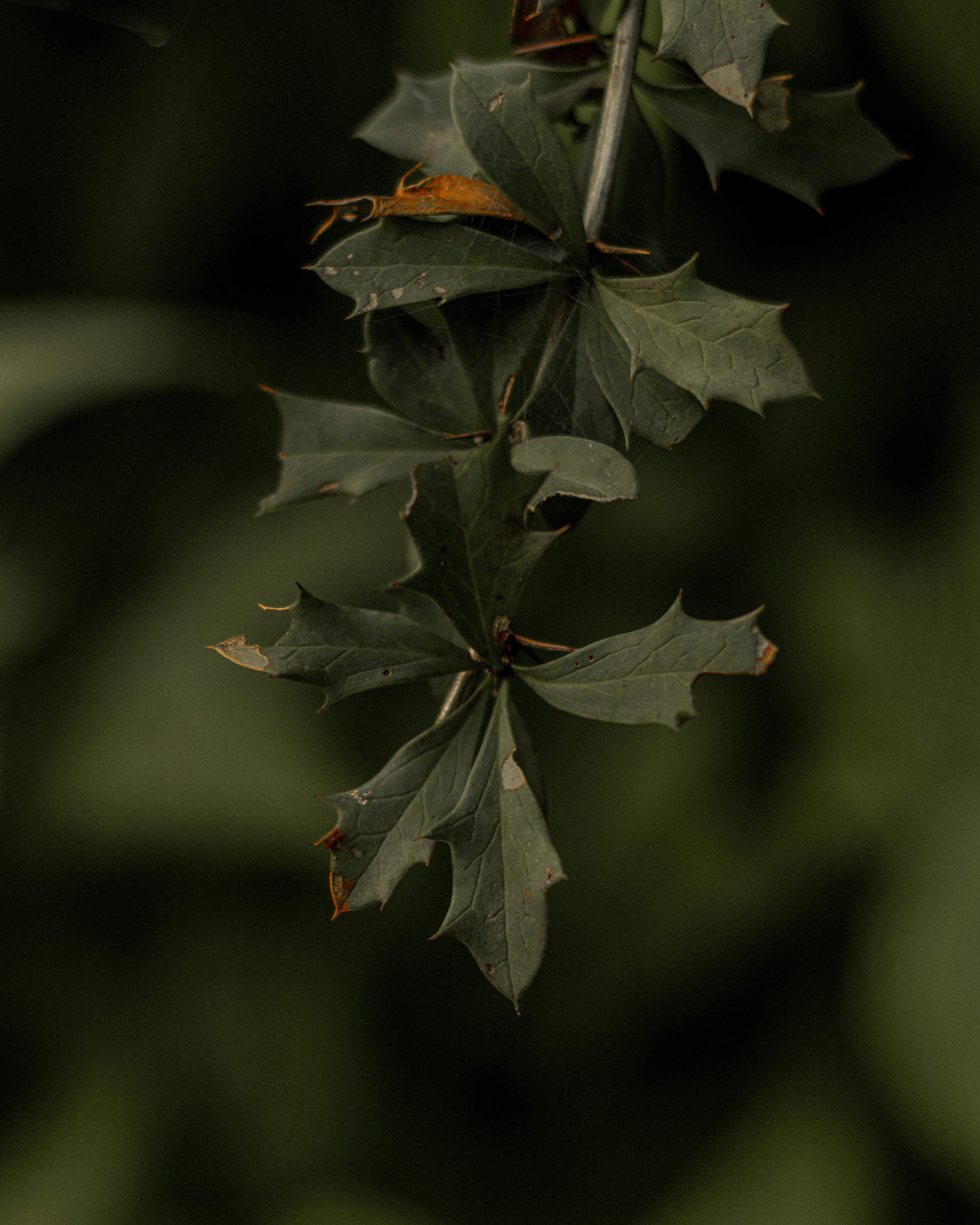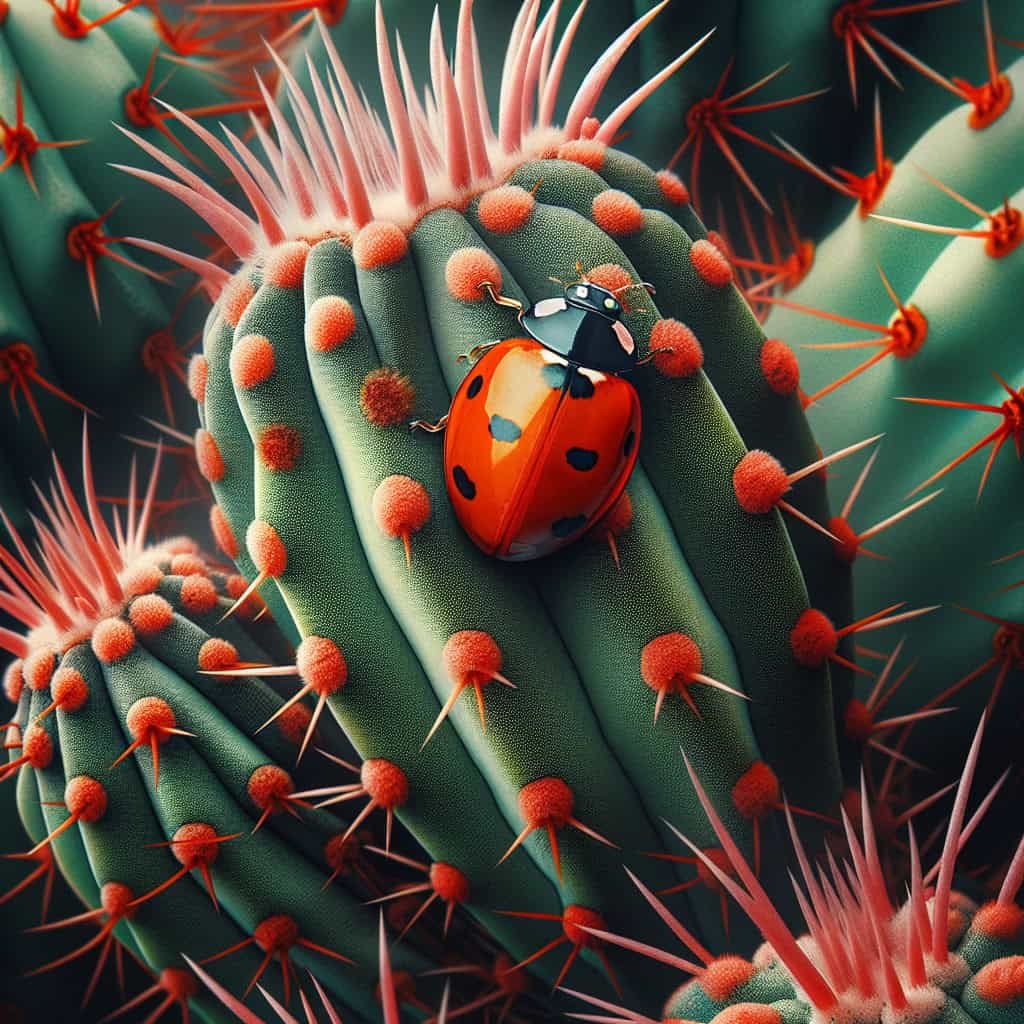Are you tired of dealing with pests on your nopal plants? If so, you might be wondering if natural remedies are an effective solution. In this article, we will explore the benefits and limitations of using natural remedies for pest control on nopal. From identifying common pests to discovering natural solutions, we have all the information you need to keep your nopal plants healthy and thriving. So let’s dive in and explore the world of natural pest control for nopal!
Understanding Nopal and Pest Control
What is Nopal?
Nopal, also known as prickly pear cactus, is a versatile plant that is widely cultivated for its culinary and medicinal purposes. It is a staple in Mexican cuisine, and its unique texture and flavor make it a popular ingredient in dishes such as salads, tacos, and salsas. Nopal is also known for its many health benefits, as it is rich in antioxidants, fiber, and vitamins.
Types of Pests Affecting Nopal
Nopal plants are susceptible to a variety of pests that can cause significant damage if left unchecked. Some of the most common pests that affect nopal include mealybugs, aphids, spider mites, and scale insects. These pests can weaken the plant, stunt its growth, and reduce its overall productivity. It is crucial to implement effective pest control measures to protect the health and vitality of nopal plants.
Importance of Pest Control for Nopal
Implementing proper pest control measures is essential to ensure the health and productivity of nopal plants. Pests can cause significant damage to the plants, leading to reduced yields and poor quality harvests. Additionally, pests can also transmit diseases that can further harm the plants. By implementing effective pest control strategies, you can prevent pest damage, improve plant health, and maximize the yield of your nopal crop.
Effective Natural Remedies for Nopal Pest Control
Neem Oil
Neem oil is a powerful natural remedy for controlling pests on nopal plants. It is derived from the neem tree and has been used for centuries for its insecticidal properties. Neem oil works by disrupting the breeding and feeding cycles of pests, ultimately leading to their demise. To use neem oil for nopal pest control, dilute it with water according to the manufacturer’s instructions and spray it onto the plants, targeting the affected areas.
Diatomaceous Earth
Diatomaceous earth is an effective and environmentally friendly remedy for controlling pests on nopal plants. It is made from the fossilized remains of diatoms and works by dehydrating and damaging the exoskeleton of pests. Diatomaceous earth should be sprinkled around the base of the plants and on the leaves, creating a barrier that pests cannot easily penetrate. It is important to reapply diatomaceous earth after rain or irrigation to maintain its effectiveness.
Garlic Spray
Garlic spray is a natural insecticide that can help repel and control pests on nopal plants. To make garlic spray, blend cloves of garlic with water and strain the mixture. The resulting liquid can be diluted and sprayed onto the plants. Garlic contains compounds that bugs find repellent, making it an effective deterrent. Regular application of garlic spray can help keep pests at bay and protect your nopal plants.
Chili Pepper Spray
Chili pepper spray is another effective natural remedy for pest control on nopal plants. The capsaicin found in chili peppers acts as a natural deterrent for many insect pests. To make chili pepper spray, blend fresh chili peppers with water and strain the mixture. Dilute the mixture and spray it onto the plants, paying close attention to the affected areas. Regular application of chili pepper spray can significantly reduce pest populations and prevent further damage to your nopal plants.
Soapy Water Solution
A simple and readily available remedy for controlling pests on nopal plants is the use of a soapy water solution. By mixing mild dish soap with water, you can create an insecticidal spray that suffocates and kills pests on contact. Spray the soapy water solution onto the affected areas of the plants, ensuring thorough coverage. It is important to use a mild soap that does not contain harsh chemicals to avoid damaging the plants.
Essential Oils
Certain essential oils, such as peppermint, rosemary, and lavender, have insecticidal properties that can help control pests on nopal plants. These oils can be diluted with water and sprayed onto the plants, targeting the affected areas. The strong aromas of these oils act as repellents, deterring pests from infesting the plants. Regular application of essential oil sprays can help keep pests away and protect the health of your nopal plants.
Companion Planting
Companion planting involves growing specific plants alongside nopal to repel pests or attract beneficial insects that can control pest populations. Some plants that are known to deter pests and enhance the health of nopal include marigolds, basil, and lavender. Planting these companion plants strategically around your nopal crop can help create a natural barrier against pests and promote a healthy ecosystem in your garden.
Beneficial Insects
Introducing beneficial insects into your garden can be an effective natural pest control strategy for nopal plants. Ladybugs, lacewings, and predatory mites are examples of beneficial insects that feed on pests such as aphids and spider mites. You can attract these beneficial insects by planting flowers that provide nectar and pollen, such as daisies and yarrow. Providing a habitat for beneficial insects can help keep pest populations in check and reduce the need for chemical interventions.
Physical Barriers
Physical barriers, such as netting or row covers, can be used to protect nopal plants from pests. These barriers create a barrier that prevents pests from accessing the plants and laying eggs. It is important to ensure that the barriers are properly secured and cover the plants completely. Regular inspection and maintenance of physical barriers are necessary to ensure their effectiveness.
Crop Rotation
Crop rotation is a beneficial practice that can help control pests on nopal plants. By rotating the location of your nopal crop each season, you can disrupt the life cycles of pests and reduce their populations. Additionally, crop rotation can help prevent the buildup of pest populations and diseases in the soil, promoting overall plant health. When planning your crop rotation, avoid planting nopal or other susceptible plants in the same area for consecutive seasons.

Preparation and Application of Natural Remedies
Proper Timing for Application
The timing of natural remedy application is crucial for effective pest control on nopal plants. It is important to apply the remedies when pests are actively present, as this is when they are most vulnerable. Regular monitoring and inspection of your nopal crop will help you determine the optimal timing for applying natural remedies.
Mixing and Dilution Guidelines
When using natural remedies for pest control on nopal, it is important to follow the recommended mixing and dilution guidelines provided by the product manufacturer or recipe instructions. Improper mixing or dilution can result in ineffective pest control or damage to the plants. It is crucial to accurately measure and mix the remedies to ensure their efficacy and safety.
Safety Precautions and Protective Gear
When using natural remedies for pest control on nopal, it is important to prioritize safety. Some remedies may cause skin irritation or allergic reactions, so wearing protective gloves, goggles, and clothing is advisable. Additionally, it is essential to keep children and pets away from treated plants until the remedies have dried or been absorbed. Read and follow the safety instructions provided by the product manufacturer to minimize any potential risks.
Monitoring and Preventive Measures
Regular Inspections
Regular inspections of your nopal plants are key to identifying pest infestations early on. Look for signs of pest damage, such as wilting leaves, discoloration, or the presence of pests themselves. Early detection allows for prompt intervention and prevents the pests from causing further harm to your plants.
Maintaining Cleanliness
Practicing good garden hygiene, such as removing weeds and fallen plant debris, can help prevent pests from finding shelter or food sources in your garden. Keep the area around your nopal plants clean and free of debris to minimize potential habitats for pests. Regularly remove any damaged or infested plant parts to prevent the spread of pests.
Pruning and Trellising
Pruning and trellising your nopal plants can help improve air circulation and sunlight exposure, reducing the risk of pest infestations. Prune any damaged or diseased branches and remove any plant parts that show signs of pest activity. Proper trellising can also help prevent pests from reaching the plants by creating a physical barrier.
Luring Methods for Trapping Pests
Luring methods, such as pheromone traps or sticky traps, can be effective for monitoring and trapping specific pests that commonly affect nopal plants. These traps use scents or adhesive surfaces to attract and capture pests. Regularly inspect the traps to monitor pest populations and take necessary action if significant numbers are detected.

Limitations and Risks of Natural Remedies
Effectiveness Against Resistant Pests
While natural remedies can be effective in controlling many pests, they may not always work against resistant or highly adaptive pests. Some pests have developed resistance mechanisms that render natural remedies less effective. In such cases, it may be necessary to explore other pest control methods or seek the advice of a professional.
Potential Eco-Toxicity
Although natural remedies are generally safer for the environment compared to synthetic chemicals, it is important to consider their potential eco-toxicity. Some natural remedies, when used improperly or excessively, can have adverse effects on non-target species, including beneficial insects or pollinators. It is crucial to use natural remedies responsibly and follow the recommended application guidelines.
Allergies and Skin Irritation
Certain natural remedies, such as garlic or essential oils, may cause allergies or skin irritation in some individuals. It is important to handle these remedies with care and follow safety precautions to minimize the risk of adverse reactions. If you experience any allergic reactions or skin irritation after using natural remedies, discontinue use and seek medical advice if necessary.
Adverse Effects on Non-Target Species
Some natural remedies, while effective against pests, can also harm non-target species. For example, insecticidal soaps or oils can kill beneficial insects if overused or if their application overlaps with the peak activity of these insects. It is important to be mindful of the potential impact on non-target species and consider alternative pest control methods if necessary.
Combining Natural Remedies with Other Pest Control Methods
Integrated Pest Management (IPM)
Integrated Pest Management (IPM) is a holistic approach that combines various pest control methods, including natural remedies, to effectively manage pest populations. By integrating monitoring, prevention, and intervention strategies, IPM aims to minimize pests’ impact while minimizing the use of harmful pesticides. Implementing IPM practices alongside natural remedies can provide a well-rounded pest control solution for nopal plants.
Biological Control
Biological control involves the introduction of natural enemies, such as beneficial insects or predatory mites, to control pest populations. This method relies on the natural behavior of these organisms to prey on pests and keep their numbers in check. Biological control can be used in conjunction with natural remedies to enhance their effectiveness and reduce the reliance on chemical pesticides.
Cultural Control
Cultural control practices involve modifying the growing conditions or cultural practices to deter pests or reduce their impact. Examples of cultural control measures for nopal plants include using clean planting materials, providing adequate spacing between plants, and implementing proper irrigation practices. By creating unfavorable conditions for pests, cultural control can help reduce the need for additional pest control measures.
Mechanical Control
Mechanical control methods involve physically removing pests from the plants or using physical barriers to prevent their access. Handpicking pests, using sticky traps, or erecting physical barriers are effective mechanical control measures for nopal plants. These methods can be combined with natural remedies to provide a comprehensive pest control solution.
Chemical Control as a Last Resort
While natural remedies are preferred for pest control on nopal plants, there may be rare instances where chemical control becomes necessary. Chemical control should only be considered as a last resort when all other methods have failed or when the pest infestation is severe and poses a significant threat to the plants. If chemical control is deemed necessary, it is essential to choose products that are specifically labeled for nopal and follow the instructions carefully.

Organic Certifications and Regulations for Nopal Pest Control
USDA Organic Standards
Nopal growers aiming to produce organic crops must adhere to the United States Department of Agriculture (USDA) organic standards. These standards outline the requirements and restrictions for organic certification, including guidelines for pest control. Using natural remedies and other organic pest control methods is critical for compliance with USDA organic standards.
Certification Bodies and Agencies
To obtain organic certification for nopal, growers must seek accreditation from recognized certification bodies or agencies. These organizations assess and verify compliance with organic standards through inspections, documentation reviews, and rigorous auditing processes. Certification bodies may differ depending on the region or country, and it is important to identify and work with accredited organizations for organic certification.
Compliance with Local Regulations
In addition to USDA organic standards, nopal growers must also comply with local regulations and requirements pertaining to pest control. These regulations may vary depending on the region or country and may include restrictions on certain pest control methods or the use of specific products. It is crucial to stay informed about local regulations and ensure compliance to maintain organic certification for nopal.
Dos and Don’ts of Natural Pest Control on Nopal
Do: Conduct Research and Experimentation
When using natural remedies for pest control on nopal, it is important to conduct research and experimentation to determine the most effective methods for your specific situation. Every garden is unique, and what works for one may not work for another. Experiment with different remedies, timing, and application techniques to find the best combination for controlling pests on your nopal plants.
Don’t: Overuse or Misapply Remedies
While natural remedies are generally safe, it is important to use them judiciously and in accordance with recommended guidelines. Overuse or misapplication of remedies can lead to ineffective pest control, increased risks to non-target species, or damage to the plants. Follow the instructions provided by the product manufacturer or reputable sources to ensure proper and safe application.
Do: Observe Correct Timing
Timing is crucial when using natural remedies for pest control on nopal. Apply remedies when pests are actively present and vulnerable to treatment. Regularly monitor your nopal plants for signs of pest activity and adjust your application timing accordingly. Proper timing ensures maximum effectiveness in controlling pests and protecting your plants.
Don’t: Ignore Professional Advice
Seeking advice from professionals or experienced farmers can provide valuable insights and guidance for natural pest control on nopal. They can offer advice on pest identification, suitable remedies, and integration of pest control methods. It is important to listen to their expertise and consider their recommendations to optimize your pest control efforts.
Do: Maintain Awareness of Pest Life Cycles
Understanding the life cycles of pests that affect nopal plants is key to effective pest control. Knowing when pests are most active, when they are vulnerable to treatment, and when they lay eggs can help you time your interventions more effectively. Regularly educate yourself about the pests prevalent in your area and their life cycles to better plan your pest control strategies.
Don’t: Rely Solely on Natural Remedies
While natural remedies are effective for controlling pests on nopal plants, it is important to adopt a holistic approach to pest management. Combining natural remedies with other pest control methods, such as cultural practices, mechanical control, or biological control, can enhance the overall effectiveness and resilience of your pest control efforts.
Success Stories: Farmers’ Experiences with Natural Pest Control on Nopal
Case Study 1: Using Neem Oil to Combat Mealybugs
Farmers in a nopal-growing community in Mexico successfully used neem oil to control mealybug infestations. By applying neem oil according to the recommended guidelines, they were able to disrupt the life cycle of mealybugs and significantly reduce their numbers. Neem oil not only controlled the existing infestations but also served as a preventive measure against future outbreaks.
Case Study 2: Companion Planting for Aphid Control
A farmer in a nopal plantation incorporated companion planting to control aphid populations. By interspersing marigolds and basil among the nopal plants, the farmer created a natural deterrent against aphids. The strong aroma of these companion plants repelled the aphids and prevented them from infesting the nopal. This practice significantly reduced the need for additional pest control measures.
Case Study 3: Beneficial Insects and Predatory Mites
Another successful approach to natural pest control on nopal involved the introduction of beneficial insects and predatory mites. A farmer introduced ladybugs and predatory mites to their nopal plantation, effectively controlling aphid and spider mite populations. These beneficial insects established a natural balance and kept pest populations in check without the need for chemical interventions.
In conclusion, natural remedies can be highly effective for pest control on nopal plants. By understanding the types of pests that affect nopal, implementing the appropriate natural remedies, and combining them with other pest control methods, you can ensure the health and productivity of your nopal crop. It is important to follow proper preparation and application techniques, monitor and prevent infestations, and be aware of the limitations and risks associated with natural remedies. By adopting a holistic approach and integrating natural pest control methods, you can successfully manage pests on your nopal plants while promoting a healthy and sustainable growing environment.

